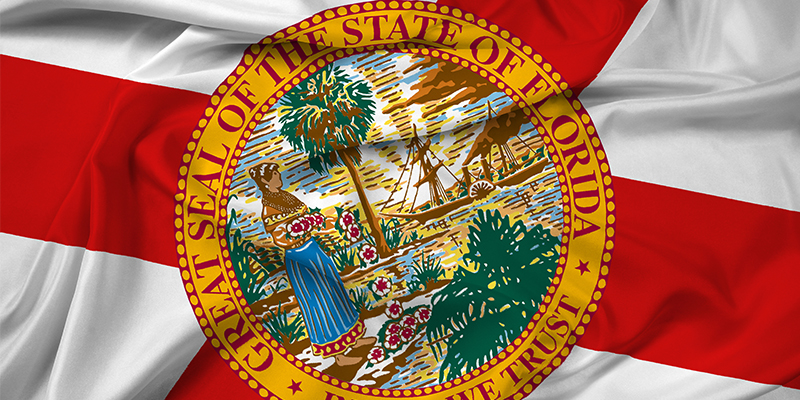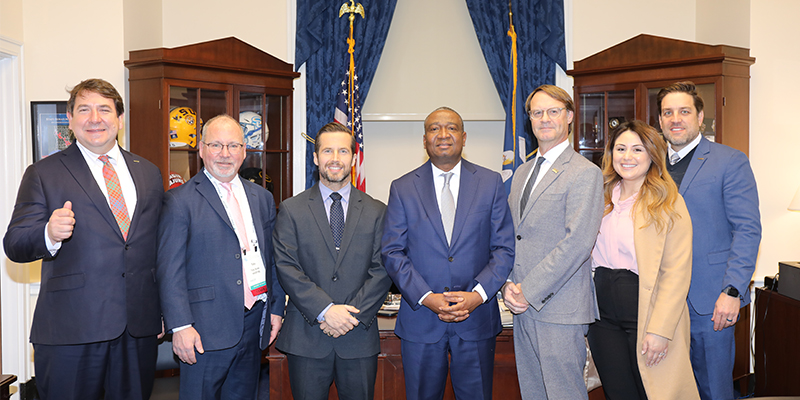The COVID-19 pandemic created new challenges in educating state and local lawmakers during this legislative year. NAIOP of Florida successfully adapted to these new challenges through a sustained advocacy approach that resulted in several legislative victories of importance to NAIOP and the commercial real estate industry. These successes demonstrate the effectiveness of remaining engaged, working together, and speaking with one voice on policy initiatives.
NAIOP of Florida’s continued advocacy over several legislative sessions paid off with Governor Ron DeSantis signing Senate Bill 50 into law on April 29. Two legislative priorities of NAIOP of Florida were included the bill: the collection of the sales tax on internet transactions and a significant reduction in the business rent tax. Prior to 2021, the state of Florida remained one of the few states that did not collect sales tax on internet transactions and the only state in the country to apply a sales tax on rental income from commercial tenants.
The governor’s signature on SB 50 ensures sales tax fairness between brick-and-mortar retail stores and online merchants. The initial revenue collected from online sales will go towards shoring up the unemployment tax fund for Florida businesses. After nearly $4 billion is placed in the fund, local businesses will then receive economic relief in the form of a significant reduction of the business rent tax from 5.5% to 2%. This reduction is expected to save businesses over $1 billion a year in Florida starting in 2023.
The passage of SB 50 is a major victory for commercial real estate and reflects the effectiveness of NAIOP of Florida’s steadfast advocacy on policy matters. Trey Wilson, the 2021 NAIOP of Florida President and partner in the law firm of Driver, McFee, Hawthorne & Diebenow PLLC in Jacksonville, highlighted this in a NAIOP of Florida press release on the business rent tax reduction. He stated: “This success is a credit to NAIOP of Florida’s tireless effort and validates our belief that the Business Rent Tax is bad for business. It is real progress towards our ultimate goal – the elimination of this onerous tax.”
Tax reforms were not NAIOP of Florida’s only legislative victory this year. Efforts to advance similar permit reforms that were achieved in Georgia resulted in the Florida Legislature passing HB 1059, which is currently awaiting the governor’s signature. The bill reforms the state’s building codes in order to bring more transparency and certainty to the permitting process, starting on October 1, 2021. According to a summary issued by the Florida Senate Committee on Community Affairs, the bill requires local permitting entities to make the following reforms:
- Allow for the electronic submission of local building permit applications.
- Require local entities to post the status of a permit application on the web.
- Require local entities to post the process for receiving, processing and approving an application’s permit request.
- Reduce the permit fee for the failure of a local entity to meet statutory deadlines for reviewing an application.
- Prohibit a local entity from requesting a copy of contractor’s or supplier’s contract in order to obtain a building permit.
Legislative victories such as these in Florida are not the result of advocacy during only one session of a legislature but are almost always the consequence of a sustained effort by NAIOP chapters and their members to establish a presence in their state capitals as the voice for the commercial real estate industry. In Florida, each of NAIOP’s chapters – Central, Northeast, Northwest, South Florida and Tampa – contributed and played a role in achieving these successes. Through visits with state lawmakers in the capitol and their districts, educational letters, coalition building and, this year in particular, virtual meetings, the collective advocacy of the five chapters led to long-sought and hard-won legislative victories.








